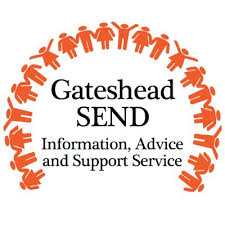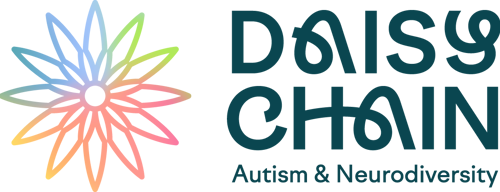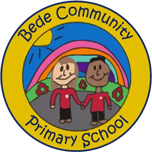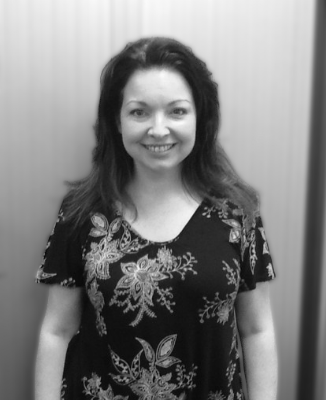Special Educational Need or Disability (SEND)
What is SEND
SEND stands for special educational need or disability. If a child is struggling to make progress in nursery, school or college it is possible that they may have special educational need or disability. A child or young person with SEND needs provision which is different from or additional to that available to others of the same age. A child’s needs should be identified and the provision should match the identified needs.
The SEND Code of Practice identifies four broad areas of need and support:
- Communication and interaction
- Cognition and learning
- Social, emotional and mental health
- Sensory and/or physical needs
You can read the SEND Code of Practise via the link below:
School SEND Coordinator
|
School SEND Coordinator |
SEND at Bede Community Primary School
At Bede Community Primary School, we are enthusiastic about providing the best possible education to every child entrusted to us. We have high expectations for all our students, regardless of gender, requirements, ethnicity, or upbringing. Our school fosters inclusivity, ensuring that all children can succeed and reach their full potential.
A high-quality and ambitious curriculum is designed to meet the needs of SEND children, ensuring that they receive the best possible education. Through high quality planning and quality first teaching, our intent for all learners with SEND is that:
- We identify early, any needs of children who may require additional support
- Ensure that all children have access to a broad and balanced curriculum which is differentiated to enable children to understand the relevance and purpose of learning.
- Provide an accessible learning environment which is tailored to the individual needs of all pupils.
- Develop children’s independence
- Regularly monitor the progress of children with SEND, using an approach which focuses on the whole child.
- Provide good quality and relevant training for all staff members supporting children with SEND.
- Work in close partnership with parents and carers.
- Work closely with external agencies and other professionals to hone and develop our provision for children with SEND.
School SEND Policy & Information Report
Our SEND policy and information report aims to:
- Set out how our school will support and make provision for pupils with special educational needs (SEND)
- Explain the roles and responsibilities of everyone involved in providing for pupils with SEND
As a school, Bede Community Primary School strives to support each child who has SEND to be able to achieve their potential and thrive in an inclusive and supportive education setting. Each child is valued as an individual and their unique needs are at the forefront of every decision made with regards to their education and well-being. The SENDCo, head teacher, and class teachers work in partnership with parents and carers to ensure that pupils’ individual needs are met through our SEND provision.
Click the link below to view our schools SEND Policy and Information Report.SEND Policy & Information Report 2023
Our ARMS & ABC Group
At Bede we are lucky enough to have 3 additionally resourced mainstream school provisions.
- Key Stage 1 ARMS Provision for children with Autistic Spectrum Disorder (ASD).
- Key Stage 2 ARMS provision for children with Autistic Spectrum disorder.
- Key Stage 1 ARMS Provision for children with Social, Emotional & Mental Health needs.
The ABC group is consists of a Key Stage 1 and a Key Stage 2 group (each to a maximum of 6) which provides children with a setting and curriculum appropriate to their SEN and helps to remove some of the barriers they have to learning
ABC Group
Gateshead's Local Offer
The Gateshead Local Offer brings together information for children and young people aged 0-25 years with special educational needs and disabilities (SEND) and their families.
//www.youtube.com/embed/dESRLTiSY7c#t=0.5
Click here to find out about Gateshead's support for children and young people with SEND:
Gateshead Thresholds
The Thresholds are a breakdown of the levels of need a child or young person may experience. The Thresholds progress from 1 to a maximum of 7 - the higher the Threshold, the higher the level of need and, therefore, the higher the level of intervention required, possibly from a range of services.
They are intended to enable people to make both an accurate identification of needs based on the presentation of the child/young person and, crucially, an identification of appropriate types of specialist provision.
They are NOT a tick list! They are a basis for collaboration between school, child/young person, parents/carers and services to form an accurate and full picture of a child/young person’s level of need. This is then used to identify appropriate and realistic support.
Information for parents/carers:
/i/video/SEN/Parent-video-on-SEND-Thresholds-.mp4
Introduction to the SEND Thresholds for Primary age children:
/i/video/SEN/send-thresholds-for-4-11-years.mp4
To view the Thresholds document, click the link below:
Latest Gateshead SEND Newsletter:
Gateshead Council produces a quarterly e-newsletter which aims to promote the voice of children and young people with SEND and raise awareness of inclusive practice, new developments and existing valuable projects across the borough.
Useful contacts for parents
 SENDiass
SENDiass
SENDiass stands for special educational needs and disability information advice and support service. Children, young people and their parents and carers where a child or young person has or may have special educational needs or a disability are able to access the service for free, impartial and confidential information and advice.
Click the link for more information:
 The Daisy Chain Project
The Daisy Chain Project
The Daisy Chain Project support and empower autistic and neuro-divergent individuals through the provision of holistic person-centred services, whilst promoting training, wellbeing, inclusion and acceptance regionally and nationwide.
Click the link for more information:
Daisy Chain ProjectDaisy Chain Project Autism Hubs
 Gateshead Rainbow Guide launches offering support to parents and carers of children with special educational needs and disabilities.
Gateshead Rainbow Guide launches offering support to parents and carers of children with special educational needs and disabilities.
Parents and carers of children with special educational needs and disabilities (SEND) across Gateshead now have access to a brand-new comprehensive guide designed to provide practical support, trusted information, and a sense of community.
The Gateshead Rainbow Guide is a straightforward guide to Gateshead's SEND support organisations created by parent carers, for parent carers.
Developed by Choice Wellbeing Service, NHS services, Gateshead Parent Carer Forum and Gateshead Council, this new guide aims to empower families navigating the often complex journey of SEND support, from initial concerns and diagnosis through to education, health, and everyday life.
Whether you need advice on managing your child's behaviour, or finding support groups in the area, the Gateshead Rainbow Guide has it covered.

 Mrs G Hind
Mrs G Hind